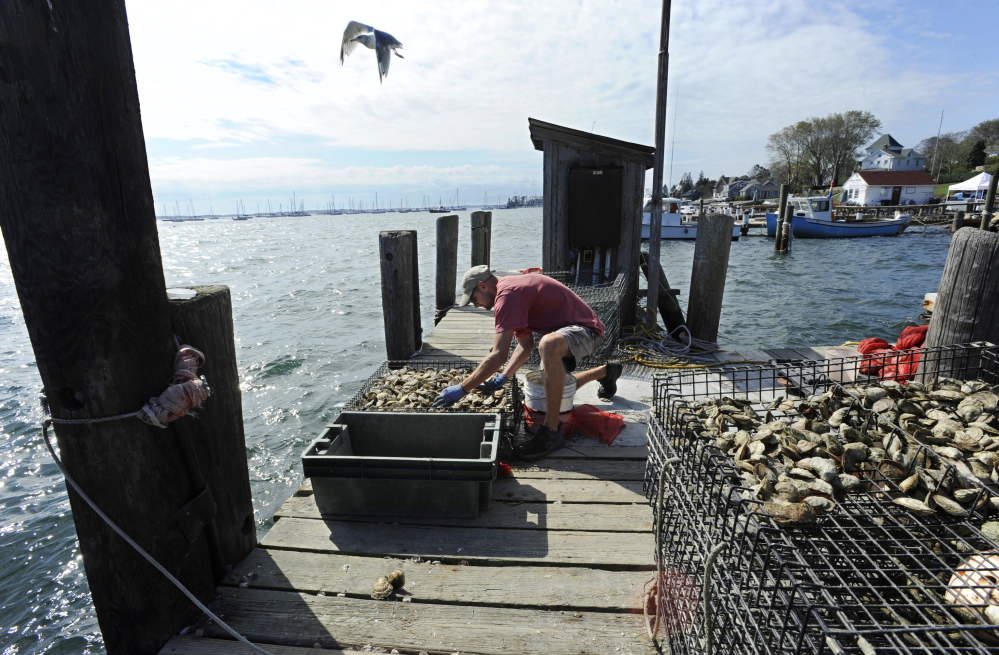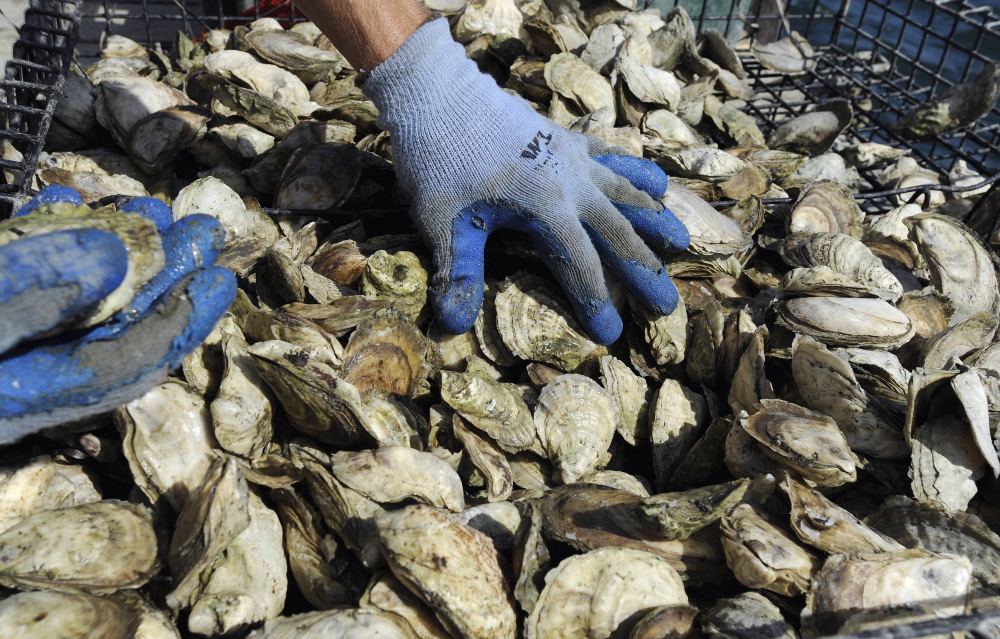HARTFORD, Conn. — Connecticut’s shellfish industry that sees state regulators as heavy-handed is backing an advisory council established by the legislature to seek common ground.
With demand strong for oysters and other shellfish, the industry and state officials have a shared goal to make sure Connecticut capitalizes on the lucrative agricultural niche. A key task of the Aquaculture Advisory Council will be to develop a plan to expand the shellfish industry.
It also will recommend procedures to make available maps with the names of shellfish bed leaseholders and review health and safety standards related to the industry – a matter that was pushed to the forefront two years ago by a temporary shutdown over tainted shellfish.
The group will include representatives of the industry, a habitat conservation organization, a marine studies expert and a local official from a shoreline community on western Long Island Sound where the state’s largest shellfish businesses operate. The 13-member council will be appointed by the governor and Democratic and Republican leaders of the legislature.
“We’re hoping we have a seat at the table as an industry,” said Joseph Gilbert of Briarpatch Enterprises Inc., a Milford oyster and clam farm. “Our regulators don’t fully understand the implications of their practices.”
Jim Amman, a former speaker of the state House of Representatives and now a lobbyist for the Connecticut Shellfish Association, said regulators have been “very aggressive,” accusing Bureau of Aquaculture officials of rewriting regulations and “making their own rules.”
“I’ve been appalled at the treatment of this industry,” he said.
Agriculture Commissioner Steven Reviczky did not respond to the criticism. Through a spokesman, he said in an email that “cultivating and harvesting shellfish is a complex venture” requiring management of natural resources, private business and public health and food safety. He said he looks forward to a “robust and open discussion” about the industry.
Sen. Bob Duff, D-Norwalk, whose district includes shell fishing operations, said the Bureau of Aquaculture “can walk the line of advocacy and also proper regulation. … I think there are agencies that do it,” he said. “There needs to be better cooperation between the industry and the regulatory body.”
A major conflict between regulators and the industry resulted in a temporary shutdown of harvest sites in 2013. State agriculture officials announced a recall of shellfish and the closing of sites due to naturally occurring bacteria that sickened people after eating oysters, clams and other shellfish from shallow areas near Norwalk and Westport. Warm water in Long Island Sound was blamed, though Gilbert said the cause was not conclusive.
Protecting public health is the industry’s primary goal, but state officials need to find the source, “not just closing vast tracts of areas and taking away people’s livelihoods,” he said.
Send questions/comments to the editors.




Success. Please wait for the page to reload. If the page does not reload within 5 seconds, please refresh the page.
Enter your email and password to access comments.
Hi, to comment on stories you must . This profile is in addition to your subscription and website login.
Already have a commenting profile? .
Invalid username/password.
Please check your email to confirm and complete your registration.
Only subscribers are eligible to post comments. Please subscribe or login first for digital access. Here’s why.
Use the form below to reset your password. When you've submitted your account email, we will send an email with a reset code.